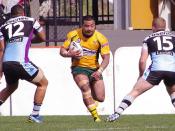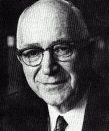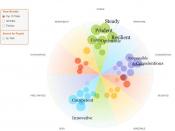Dispositional Personality Theories
Dispositional personality theories are derived from the theorists include Allport, Eysenck, McCrae, Cattell, and Costa, among others. While Allport believes differently, dispositional and trait theories assumes that an individual reacts to his or her environment and behaves in a certain way in social situations in accordance to how that person behaved in past situations of similar settings (Elsevier's Dictionary of Psychological Theories, 2006). Allport, on the other hand, believed that human behavior is future-oriented, and is not based on a set of habits and dispositions. This paper will examine and describe how dispositional theories affect individual personalities as well as providing explanation to how these theories influence interpersonal relationships.
The idea of personality should have a hypothetical understanding. There is no obvious neurological base that can be found for personality, even though efforts have been made to explain the foundation of personality in words of neurophysiology (Heinstrom, 2003).
The theories of personality hypothesize that organization of mental and physical aspects of a person expresses as a stable, consistent tendency to exhibit particular patterns of behavior in a broad range of circumstances (Reber, Allen, & Reber, 2009).Using the statement above the many predispositions to act in which plainly dozens of particular words have been applied as descriptive labels such as traits, ability, habit, set, instinct, drive, temperament, sentiment, motive and faculty are taken to mean dispositions.
The trouble with this theoretical issue is the need to explain the regularity and consistency of behavior independently of variation and alteration in the environment. Different approaches in this theory have tried to use the techniques of factor analysis in an attempt to isolate underlying dimensions of personality (Reber, Allen, & Reber, 2009).
When looking at the affect these theories have on personality, a person needs to look at the concept of...


